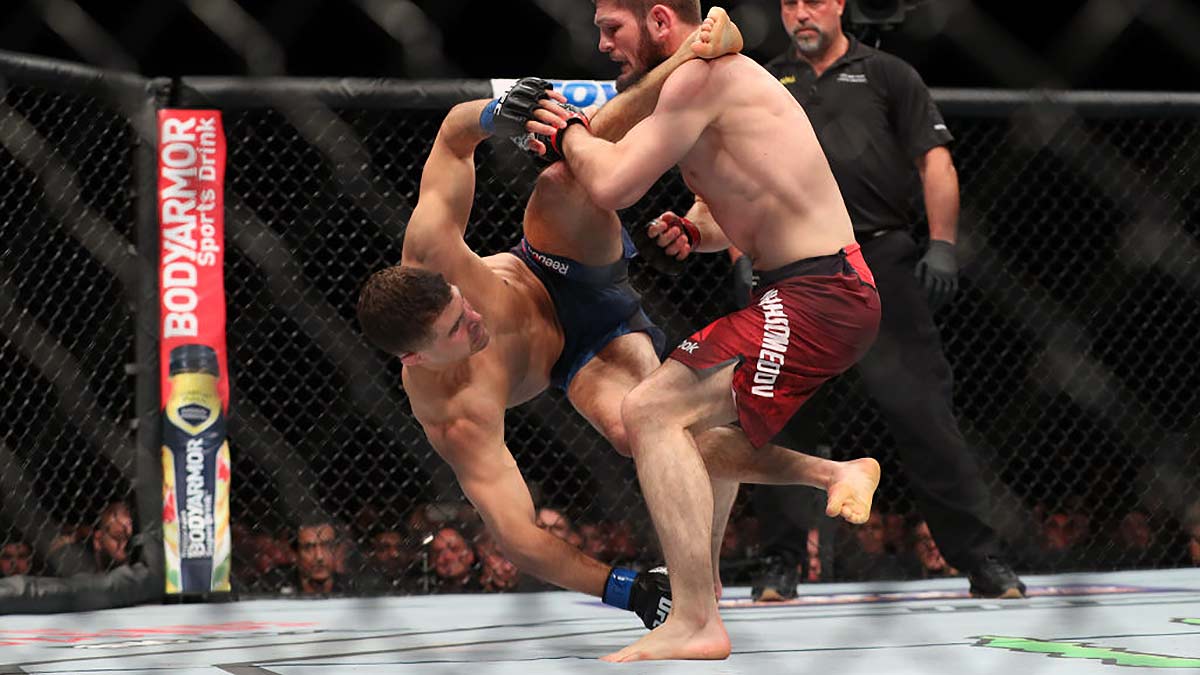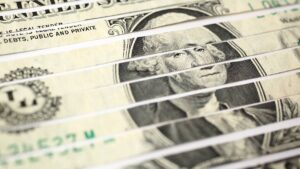FREE WHELAN: Getting defensive (in a good way), and how to invest through a conflict

Pic: Getty
In this Stockhead series, investment manager James Whelan from VFS Group offers his insights on the key investment themes and trends in domestic and global markets. From macro musings to the metaverse and everything in between, Whelan offers his distilled thoughts on the hot topic of the day, week, month or year, from the point of view of a professional money manager.
I’ll start with an easy one: What’s worse than being wrong?
Answer: Staying wrong.
We all know this damn phrase that gets trotted out: ‘When the facts change, I change; what do you do?’
And as much as it grates me, there’s a lot to be said for it.
Right now, there’s a conversation going on in shops all over the world as to whether what’s worked in the past will keep working.
“Tech got us this far, innovative companies will get us out of this mess, no doubt,” is ringing through investment committees everywhere.
In part they’re right, innovative companies will get you out of this mess — just not ones on stupid valuations that don’t make any money.
Also if by “innovative” you mean actual strategy and margins and capex and all those concepts MBA graduates love (that we’ve been able to skip over for a few years) then yes, innovative companies will get you out of this.
Back to basics
The Age of the White Bread Investor is upon us.
If you think that staying with the same strategy going into unchartered multiple rate hike territory is going to serve you well, then I have some news for you about 2022.
Still, if Powell flinches after the first rate hike and starts doing the circuit on ‘one and done, we’re sorry’, then all bets are off — buy with the ears pinned back.
But for now, let’s see what US investor Ross Gerber has to say, in a wildly-circulated video of his last week.
He’s slagging off Europe, which is the home of some of the finest value defensives money can buy:
I think I just found the single most compelling reason to shift some of your portfolio of investments into European value stocks going forward.pic.twitter.com/dkWASF2P9N
— Drew Dickson (@AlbertBridgeCap) February 10, 2022
(For what it’s worth — I used to work in a bar and if someone started talking like this, I would absolutely stop serving him.)
Getting defensive (in a good way)
Needless to say, last Friday I bought the Betashares F100 ETF.
It’s the FTSE 100 (UK listed Euro/UK stocks), and it represents excellent value trading at ~12.5x forward P/E with a 3.5% yield.
It usually does well in a rate hike cycle, and the companies within it have low-set expectations.
Full of tobacco, oil, financials, commodities, and defensive quality sectors.
Simply put: It’s the boomer alpha male ETF you were looking for.
(Too bad British chip maker Arm is choosing to list in the US, otherwise it would have given the F100 that little semiconductor nuts and bolts flavour it’s missing.)
As for World War 3…
I do a little segment on the business telly, and sometimes I get asked a few random questions.
A few weeks ago I was asked about the Russia-Ukraine situation and what the trade was there.
I mentioned that a lot of people would point to:
– Gold, which doesn’t move as a pure safe-haven anymore however eyes on the GOLD ETF here locally for a breakout (held)
– Aerospace and defence; and
– Natural gas, a massive trap for young players which no one gets right.
For investors playing at home, natural gas is literally dubbed ‘The Widowmaker’.
Whenever my friend Robbo talks about trading Natural Gas he gets the Thousand Yard Stare and takes a sip from his beer:
“…We lost a lotta good men out there, Jimmy…”
For me, in this particular geopolitical conflict the the easiest play is food.
Yes, natural gas will be a thing.
We’ve watched Europe show just how much they let Russia’s Nord Stream gas pipeline become an umbilical cord for their own energy needs.
Now, there’s Ukraine and NATO and Putin and China and Biden and Midterms and the only way is up for natural gas — which means fertiliser becomes more expensive and scarce.
In September last year, the UK was afraid that ‘Christmas would be cancelled’ because they couldn’t get the CO2 to slaughter turkeys and chickens (that’s how they do it now) because C02 is a by-product of the fertiliser manufacturing process.
Fertiliser plants were shutting down because they need gas to create the stuff, and prices were just too high.
That was BEFORE a war with Ukraine.
Here’s John Dizard writing for the Financial Times on the weekend:
“It has now dawned on EU authorities that the union’s agonising dependence on Russian natural gas will be compounded by Russian companies’ market power over fertiliser. As one Eurocrat told me this week, ‘You do not get a Nobel Prize for seeing this fertiliser situation as a threat to Europe’s food security’.”
If energy was the biggest thing of 2021, food will be the biggest thing of 2022.
I’m long the Betashares FOOD ETF. It provides simple exposure to global agriculture companies, where you can get the benefit of rising gas prices and a very shaky fertiliser market.
Don’t hide under the bed, but own some quality names — and stay invested.
The views, information, or opinions expressed in the interview in this article are solely those of the writer and do not represent the views of Stockhead.
Stockhead has not provided, endorsed or otherwise assumed responsibility for any financial product advice contained in this article.
UNLOCK INSIGHTS
Discover the untold stories of emerging ASX stocks.
Daily news and expert analysis, it's free to subscribe.
By proceeding, you confirm you understand that we handle personal information in accordance with our Privacy Policy.








